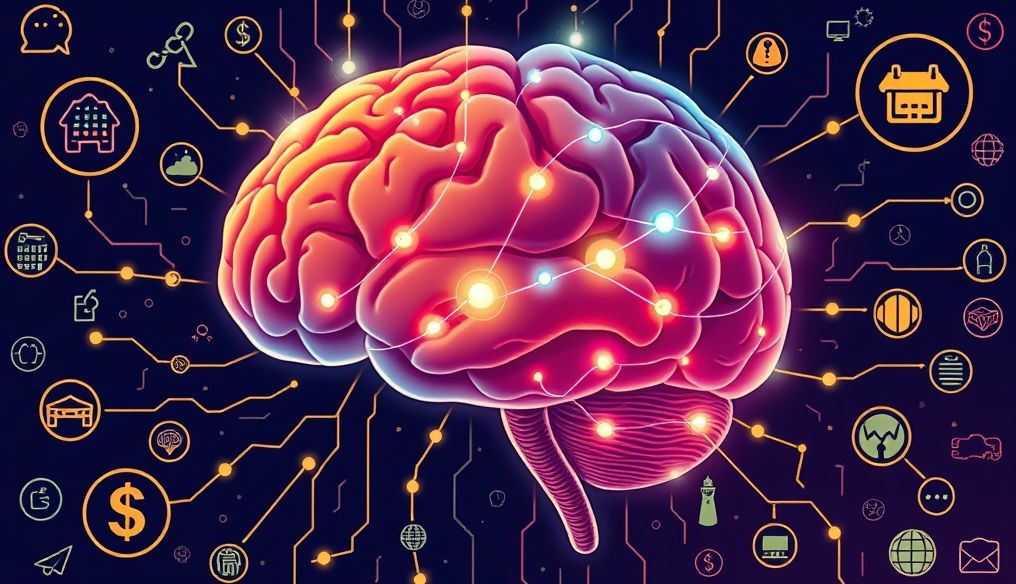How Can You Improve Your Memory and Easily Remember Names and Dates?
A strong memory is key to success in many aspects of life, whether in studies, work, or social relationships. Fortunately, memory is not a fixed fate, but a skill that can be developed and improved through a variety of techniques and strategies. This article will provide you with a comprehensive guide to boosting your memory and remembering names and dates easily.
Chapter 1: Understanding Memory and How It Works
Before we delve into improvement techniques, it's important to understand how memory works. Memory is not just a box where we store information, but a complex process involving several stages:
- Encoding: Converting sensory information into a form that memory can store.
- Storage: Retaining the encoded information for a certain period of time.
- Retrieval: Recovering stored information when needed.
There are different types of memory, including:
- Sensory Memory: Holds sensory information for a very short time (less than a second).
- Short-Term Memory: Holds information for a short time (about 20-30 seconds) and can hold about 7 items on average.
- Long-Term Memory: Holds information for a long time, perhaps a lifetime.
Factors Affecting Memory:
- Attention and Focus: Without attention, information will not be encoded correctly.
- Repetition and Practice: Repeating information enhances its storage in long-term memory.
- Association and Connection: Connecting new information with existing information in memory makes it easier to remember.
- Emotional State: Memories associated with strong emotions are more firmly established.
- Sleep: Sleep plays a vital role in consolidating memories.
Chapter 2: General Memory Improvement Techniques
There are many techniques that can be used to improve memory in general:
- Spaced Repetition: Reviewing information at increasing intervals of time. Studies have shown that this technique is very effective in enhancing long-term memory.
- Chunking: Dividing complex information into smaller, more manageable parts. For example, instead of trying to remember a whole phone number, break it down into groups of numbers.
- Association: Linking new information to familiar information or strong mental images.
- Method of Loci (Memory Palace): Imagine a familiar place (such as your home) and associate each piece of information you want to remember with a specific location in that place.
- Keyword Method: Using a keyword that reminds you of the complete information.
- Note-Taking: Writing notes helps to consolidate information in memory.
- Teaching Others: Explaining information to others forces you to understand it deeply, which enhances recall.
Chapter 3: How to Remember Names Easily
Forgetting names is common and embarrassing. Here are some tips to remember names easily:
- Focus and Attention: When someone introduces themselves to you, pay close attention to the name and try to hear it clearly.
- Immediate Repetition: Repeat the name out loud or in your mind immediately after hearing it. You can say something like "Hello [Name], nice to meet you."
- Visual Association: Link the name to facial features or any distinctive trait in the person.
- Association with Meaning: If the name has a meaning (like "Rose"), imagine a mental image associated with that meaning.
- Writing It Down: If possible, write the name somewhere (like a notebook or your phone).
- Review: Try to remember the name later in the conversation or after it ends.
- Using Apps: There are apps specifically designed to help you remember names, such as Name Shark or Remembering Names.
Chapter 4: Strategies for Remembering Dates
Remembering dates can be challenging, especially if there are many dates you need to remember. Here are some effective strategies:
- Linking to Events: Link the date to an important or familiar event to you. For example, if you are trying to remember someone's birthday, link it to your birthday or the birthday of someone else you know.
- Creating a Story: Create a story that connects the date to the event it represents. Stories help make information more engaging and easier to remember.
- Using Timelines: Create a visual timeline showing the order of events and dates.
- Number-Shape System: Convert each number into a specific shape (like 1 looks like a pen, 2 looks like a swan, etc.) and then create a story that connects these shapes to the event you want to remember.
- Using Apps and Calendars: Use calendar apps to record dates and set reminders.
- Spaced Repetition: Review dates periodically using the spaced repetition technique.
Chapter 5: The Role of Nutrition in Improving Memory
Proper nutrition plays a crucial role in brain health and cognitive functions, including memory. Some foods and nutrients that boost memory include:
- Omega-3 Fatty Acids: Found in fatty fish (such as salmon and tuna), flaxseeds, and walnuts.
- Antioxidants: Found in colorful fruits and vegetables (such as berries, spinach, and broccoli).
- Choline: Found in eggs, liver, and peanuts.
- B Vitamins: Found in whole grains, leafy greens, and meats.
- Curcumin: Found in turmeric, a powerful anti-inflammatory and antioxidant.
In addition, it is important to avoid processed foods, added sugars, and saturated fats, as they can negatively affect memory and cognitive functions.
Chapter 6: The Impact of Sleep and Rest on Memory
Good sleep is essential for consolidating memories and enhancing cognitive functions. During sleep, the brain processes information and stores it in long-term memory. Lack of sleep can lead to difficulty concentrating, impaired memory, and an increased risk of neurodegenerative diseases.
Try to get 7-8 hours of good sleep each night. In addition, practice relaxation techniques such as meditation and yoga to reduce stress and improve sleep quality.
Chapter 7: Exercising to Improve Memory
Exercise not only benefits the body but also the brain. Exercise increases blood flow to the brain, which improves cognitive functions, including memory. Studies have shown that regular exercise can increase the size of the hippocampus, the part of the brain responsible for memory.
Try to exercise moderately for at least 30 minutes most days of the week. You can walk, run, swim, or do any activity you enjoy.
Chapter 8: Brain Exercises and Memory Games
Just as your muscles need exercise, your brain also needs exercise to stay healthy and strong. There are many mental exercises and memory games that can help improve memory and cognitive functions:
- Solving Puzzles and Crosswords: These games require critical thinking and problem-solving, which stimulate the brain and improve memory.
- Learning a New Skill: Learning a new skill (such as playing a musical instrument or learning a new language) requires focus and effort, which enhances memory and cognitive functions.
- Reading Books and Articles: Reading stimulates the brain and expands knowledge, which improves memory.
- Memory Games: There are many memory games available online or on mobile devices, such as Lumosity and Elevate.
Conclusion:
Improving memory and easily remembering names and dates is an achievable goal through the application of a variety of techniques and strategies. By understanding how memory works, applying general improvement techniques, using specific strategies to remember names and dates, eating healthy foods, getting enough sleep, exercising, and exercising the mind, you can boost your memory and improve your life overall.




